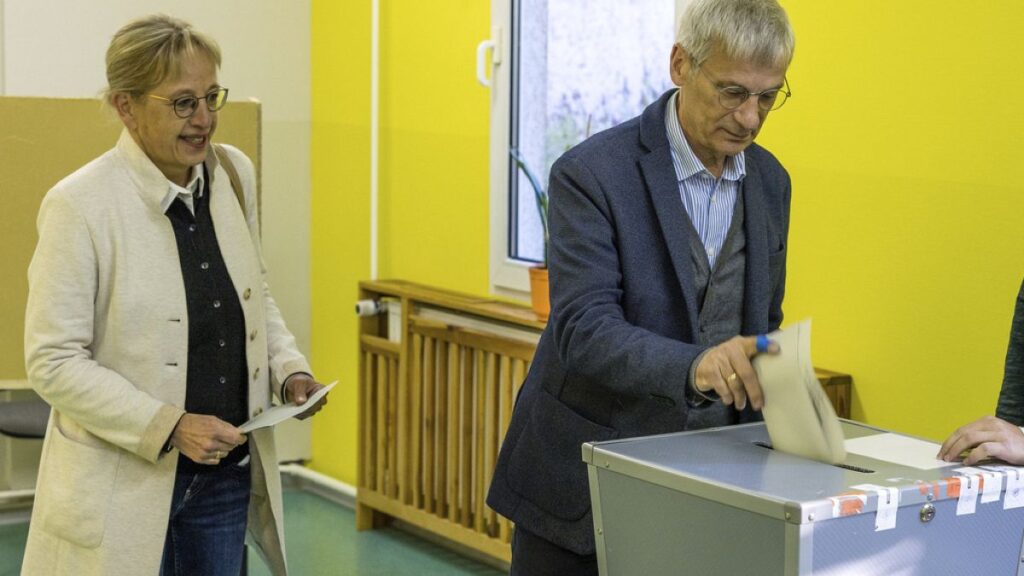Olaf Scholz’s party is narrowly ahead of the far-right AfD, which has failed to win a third consecutive election victory, according to initial polls.
The German far-right party Alternativ für Deutschland (AfD) failed to win another election victory on Sunday, this time in Brandenburg, the stronghold of the party of Social Democrat Chancellor Olaf Scholz, three weeks after two electoral successes, in Thuringia and Saxony. The SPD actually came out on top in the poll, according to the first projections from the polls, published at 6 p.m. by public television stations ARD and ZDF. Brandenburg is a stronghold of the center-left party and this regional election was considered crucial, particularly for Chancellor Olaf Scholz, who is very unpopular a year before the general elections.
Voters – 2.2 million people over the age of 16 – in Brandenburg, which surrounds the capital Berlin in the east of the country, have therefore decided to support the SPD again, which would win between 32 and 31% of the vote, closely followed by Alternativ fûr Deutschland (AfD), a pro-Russian party opposed to military aid to Ukraine, which would obtain between 30% and 29%.
The AfD won the most votes and also did well in Saxony in the September 1 election, raising concerns at home and abroad about the growing support for the far right in the European Union’s largest country.
The far-right party has gained ground amid a growing backlash against mass immigration to Germany over the past decade and several recent extremist attacks.
Riding on the discontent of the inhabitants of the former GDR, a particularly fertile ground due to persistent inequalities since reunification, the AfD is buoyed by the return to the forefront of debates on security and immigration. A series of attacks with presumed Islamist motives has shocked Germany since the end of August, including a triple stabbing murder committed in Solingen (west of the country) during a popular festival and for which a 26-year-old Syrian was arrested.
In Brandenburg, immigration is the number one concern for voters, according to a recent poll. Although the AfD emerged victorious in the elections in Saxony and Thuringia, it does not lead the regional governments, as the other parties still refuse to form a coalition with it.




